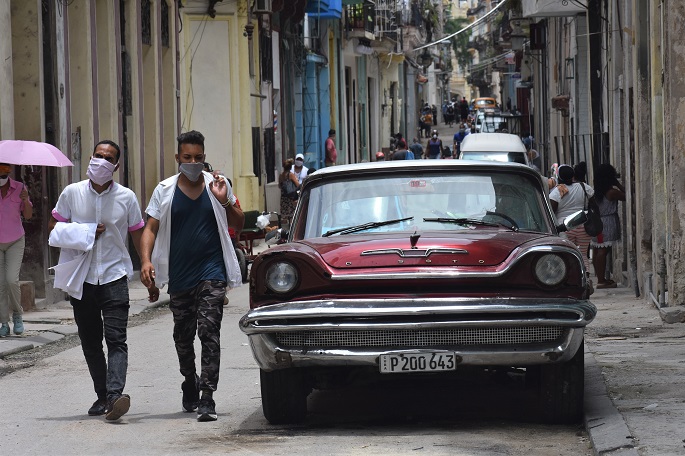Family's isolation story tells how Cuba swiftly responds to coronavirus
Published : 26 Jun 2020, 12:04
After staying in a hospital isolated from her family for nearly 20 days, 55-year-old Maria Teresa Castillo has been discharged from hospitals and donated plasma to help others recover from the disease, reported Xinhua.
A resident of Havana's coastal Guanabo district, Castillo had spent around 10 days at home nursing what she thought was a bad flu that required nothing more than lots of rest, fluids and vitamins. However, her health kept deteriorating.
"When I tested positive for COVID-19, all of a sudden life changed," she told Xinhua.
Far from fumbling her case, the island's well-oiled healthcare system responded swiftly, isolating her and her closest contacts before the virus had a chance to spread beyond her inner circle to infect others with the potentially deadly disease, COVID-19.
Castillo was rushed to the Luis Diaz Soto Central Military Hospital on the night of March 28, about two weeks after coming into close contact with a Cuban who tested positive in the wake of a trip to Spain, becoming one of the first Cubans to catch the novel coronavirus.
Seven people having close contact with Castillo, including her daughters, were taken by state vehicles to hospitals and student dorms-turned-isolation centers for testing, monitoring, and possible medical treatment should they need it.
Castillo's younger daughter, Anabel Hernandez, 25, was taken to the same medical facility where her mother was hospitalized.
"My mother and I were just some meters away, but physical contact was not allowed according to COVID-19 protocols. It was a totally new experience for me," Anabel said.
She tested negative, and decided to join the national campaign to raise awareness about the need to practise good health and hygiene, especially during the pandemic.
Castillo's elder daughter, Adriana Hernandez, 28, ended up at an isolation center on the outskirts of Havana, some 20 km away from her closest relatives, where she stayed for 10 days.
"I remember, in particular, that I was hospitalized on my birthday and couldn't have face to face contact with any relatives," Adriana said.
She also tested negative.
Their mother, meanwhile, remained in isolation for nearly 20 days in a room on the seventh floor of the hospital that was cordoned off to prevent healthcare workers from getting infected.
"At first I panicked because of the rumors and fake news on social media (about the virus)," Castillo recalled. "Then I started to overcome the obstacles and feel more confident of myself. I very much thank the doctors and nurses at the hospital for their support."
Cuba detected its first cases of COVID-19 on March 11, when three Italian tourists visiting the city of Trinidad, some 350 km from Havana, tested positive for the virus.
By March 31, just three days after Castillo was taken to hospital, the government suspended international flights and requested vessels in Cuban territorial waters to withdraw.
The authority also set out to detect suspected cases of COVID-19 with the help of healthcare professionals, medical students and volunteer staff of non-government organizations, who knock on doors to inquire whether anyone may be suffering from possible coronavirus symptoms.
Cuba has so far reported 85 deaths from the virus. On Thursday, two new infections were reported over the past 24 hours, bringing the national tally to 2,321, according to the country's Ministry of Public Health.
Some 2,130 Cuban COVID-19 patients have recovered and have been discharged from hospitals, including Castillo.
The island has effectively contained the outbreak, nevertheless Cuban psychologist Manuel Calvino, a senior professor at the University of Havana's School of Psychology, suggested Cubans should make some lifestyle adjustments with the virus in mind.
"The coronavirus pandemic may disappear, but not the disease. We will be required to live in a different way, paying attention to the number of people we invite home, the physical distance at workplaces, and the number of students in a classroom," Calvino said.


